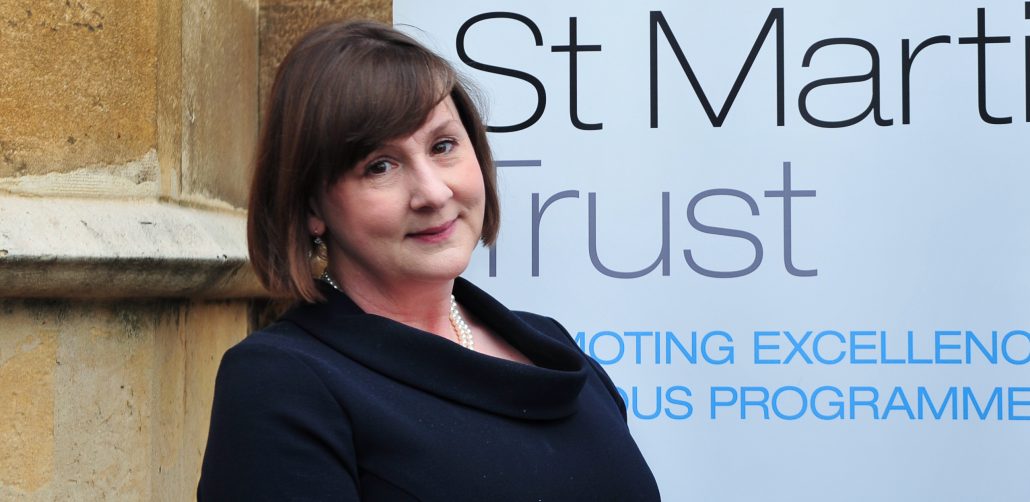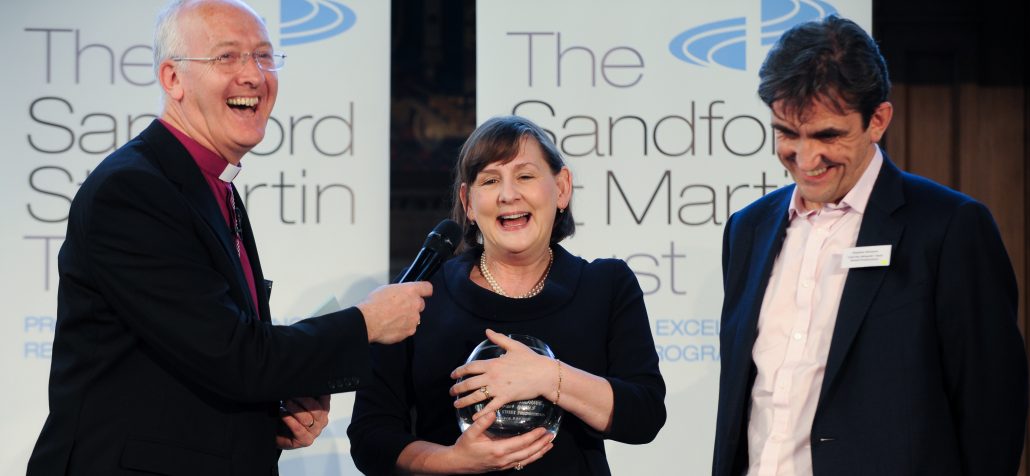Notes from the Sisterhood
‘In Conversation with Heidi Thomas’: a Sandford St Martin Media Salon

If you’re one of the few people who have never seen an episode of Heidi Thomas’ mega TV hit “Call the Midwife” you might have the mistaken impression that it’s a bit of soft-soap comfort television: picture-perfect period drama escapism featuring the fresh-faced nuns on bicycles, babies, copious cups of tea and as soundtrack as nostalgic as a pitch-perfect rendition of ‘Jerusalem’.
But you’d be wrong – because “Call the Midwife” has been one of the boldest and most quietly radical shows on TV since it first launched in 2012.
This is largely down to the series’ creator Heidi Thomas. As the New York Times so aptly put it – because, yes, “Call the Midwife” is a genuinely international phenomenon – “week after week, Call the Midwife delves into the female reproductive experience with grit and specificity, politicising matters more often left personal, and vice versa. It treats invisible women—old women, poor women, homely mums—as rich wells of drama. Within its vintage frame, it manages to be both a blazing op-ed for socialised health care and a subdued meditation on the search for meaning by doubting Christians. Most notably, it’s an unparalleled tearjerker, triggering more sobbing attacks than the first fifteen minutes of “Up.””
On 24 May 2022, Heidi was the star of a special Sandford St Martin salon at the House of St Barnabas and held in front of a live audience which in addition to including content-makers and writers also included at least three midwives who had been trained by the same order of nuns upon which that in Call The Midwife is based and representatives of the British Nuclear Test Veterans Association who expressed their thanks to her for raising awareness of their situation in series ten.

And as a further reminder of why we love “Call the Midwife” so much, here is part of the conversation Heidi and her husband Stephen McGann (who plays the “dishy Dr. Turner”) had with Bishop Nick Baines when they came to Lambeth Palace to receive the Sandford St Martin Radio Times Readers’ Award in 2016.
Bishop Nick: “Call the Midwife” is based on a series of books by Jennifer Worth, set in 1950s East End Anglican convent. How on earth did you sell that one to the commissioning executives?
Heidi: Well, it was quite interesting because the book sold itself to me first. I do remember going in to see the BBC and they said, ‘How will you deal with the faith component?’ And I said when fifty percent of the characters are defined by their religious belief, I think the faith aspect is going to take care of itself. And so, it did really but if you’re telling stories about people who have faith, you are naturally telling stories about courage, trust, hope, forgiveness, conflict and love and there’s no better basis for drama than that.
Bishop Nick: Stephen, I think it was (the Telegraph TV critic) Allison Pearson who described it as ‘touching the most anguished parts of the human condition’ what was it like to play within that?
Stephen: It still is one of the greatest jobs of my life. It’s one of the most wonderful productions. And as long as it goes on, I would like to do it for many, many more years to come. As far as faith is concerned, what always amazes me – as someone who grew up in a faith – is that these people, like any good dramatic story, these people are human beings. They have a bad day. They get tired. They get ill. They get troubled – which is just exactly what everybody else does. And we’ve brought that before the watershed to entire families back in the front of TV screens and that makes me very happy.



